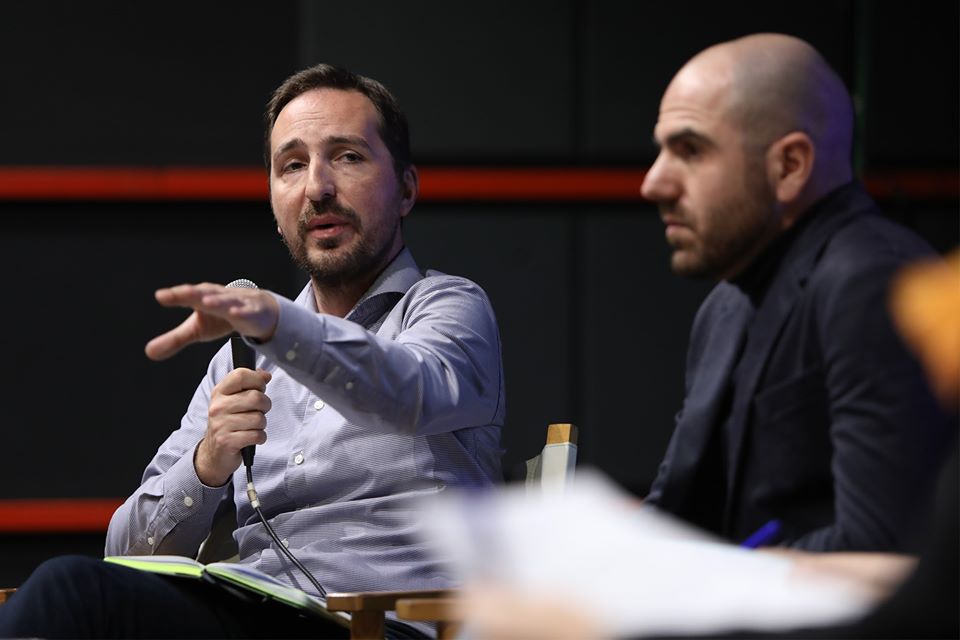NAZIVANJE RATNIH ZLOČINA PRAVIM IMENOM NEMA ALTERNATIVU

“Ova publikacija nije o prošlosti o kojoj ne postoji konsenzus – ona je o sadašnjosti koja se gradi na interpretacijama prošlosti zasnovanim na bolu, mržnji, otklonu prema drugima i – poricanju ili veličanju ratnih zločina“, kazala je pravna ekspertica, Lejla Gačanica, na promociji publikacije “Nazivanje ratnih zločina pravim imenom“. Publikacija, nastala u saradnji sa Caroline Finkeldey, iza koje stoje organizacija TRIAL International i forum ZFD, ima za cilj pokretanje konstruktivnog diskursa o neophodnosti donošenja zakona o zabrani poricanja genocida, holokausta, zločina protiv čovječnosti i ratnih zločina. O ovoj temi u okviru panel diskusije, osim autorice, govorili su i direktor Balkanske Istraživačke Mreže, Denis Džidić, aktivistica udruženja “SARA Srebrenica”, Valentina Gagić-Lazić te docent na Pravnom fakultetu u Sarajevu, Midhat Izmirlija.

“Mi se još uvijek ne bavimo istinskim ozdravljenjem društva, već prema potrebi zveckamo oružjem, ignorišući presude Međunarodnog suda za bivšu Jugoslaviju i empatiju za sve žrtve“, istakla je Gačanica te dodala da je pored zakonske zabrane, potreban kontinuiran rad u svim drugim oblastima koji će možda polučiti i buđenjem dovoljne društvene svijesti.
“Pitanje pravnog reguliranja i zabrane negiranja, opravdavanja ili odobravanja genocida, ratnih zločina i zločina protiv čovječnosti polazi prvenstveno od civilizacijske potrebe suočavanja sa utvrđenim činjenicama“, naveo je docent na katedri za državno i međunarodno javno pravo Pravnog fakulteta Univerziteta u Sarajevu, Midhat Izmirlija, te dodao da je potrebno uspostaviti kulturu sjećanja nasuprot kulturi zaborava i dosegnuti “odgovorno pamćenje“.

Aktivistica udruženja “SARA Srebrenica”, Valentina Gagić-Lazić, naglasila je da je poražavajuća činjenica da živimo u društvu gdje se o djelima ljudi koji su u ratu rizikovali svoje živote spašavajući druge ne smije govoriti. “Kao društvo nismo pokazali da imamo kapacitet odmaći se od etničkog kolektiviteta i potrebe da tvrdimo da je za sve nevolje kriv onaj sa druge strane dvorišta, mosta, grada, ulice ili granice“, kazala je Valentina Gagić-Lazić.
Direktor Balkanske Istraživačke Mreže, Denis Džidić, naglasio je da je poražavajuće da smo četvrt stoljeća od genocida u Srebrenici u situaciji da ne govorimo o koracima uvrštavanja sudski utvrđenih činjenica u udžbenike i javni prostor. “Umjesto toga, u opasnosti smo od ‘institucionaliziranja’ negiranja genocida sa tzv. međunarodnom komisijom koju je organizirala NSRS i koja će iznijeti svoje zaključke uskoro“, naveo je Džidić.

U Bosni i Hercegovini česta je pojava da se u javnom diskursu poriču, minimiziraju ili odobravaju presuđeni ratni zločini, a osuđeni ratni zločinci javno se glorificiraju bez ikakvih sankcija. Retorike, mahom nacionalne koje ovo propagiraju, rasprostranjene su više nego ikad te dominiraju javnim prostorom, a vodeće političke elite često podržavaju ovakve prakse ili ih ne osuđuju.
Publikaciju “Nazivanje ratnih zločina pravim imenom” možete pronaći na sljedećem linku i na engleskom jeziku. Također, tabelarni prikaz zakonskih rješenja negiranja u drugim državama možete pronaći na sljedećem linku, i na engleskom jeziku.
